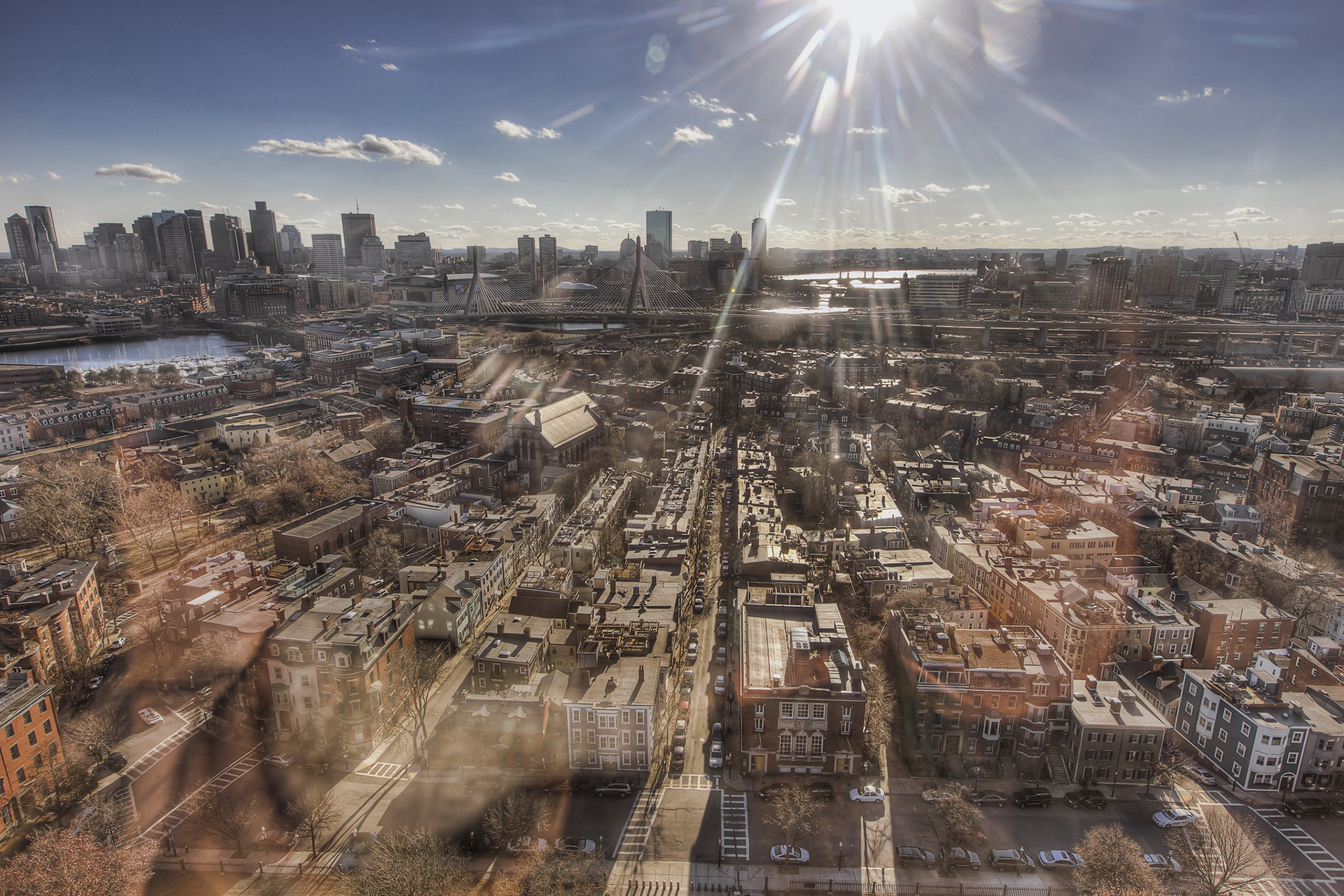Have you ever noticed that summer in the city can get pretty hot—hotter even than the surrounding suburbs and more rural areas? Turns out, there are scientific reasons for this related both to city infrastructure and to climate change.
Let's dig deeper into what causes this phenomenon, the impacts it has on people and the planet, and what we can do about it.
The Science
Temperatures naturally rise during summertime, but that classic spike of heat is getting more intense as climate change raises overall temperatures globally.
These warming temperatures bring with them a rise in the occurrence of extreme heat events, when temperatures soar above 90°F for at least two to three days. These events are connected to aggravated cardiovascular, kidney, and respiratory disorders and higher rates of death, especially for older adults, children, and people who are sick or have pre-existing health conditions.
Temperature is also directly linked to air quality, with higher temperatures correlating with higher levels of air pollution.
The Problem
Not all of Massachusetts experiences these effects the same—cities are hit especially hard by extreme heat. Urban areas experience a phenomenon known as heat islands, where specific parts of cities face significantly higher temperatures than their suburban or rural counterparts because they don't contain as much flora.
Grasses, trees, and other plants are ecosystem features that NASA calls "nature's air conditioners" because of their cooling capabilities. Meanwhile the dark asphalt, sidewalks, and buildings that comprise our cities generate more heat rather than absorb it.
On the hottest days, especially during peak midday hours when more energy is required to cool homes and buildings, energy grid operators drastically increase the amount of fossil fuels they burn to meet the extra demand, further exacerbating the greenhouse gas problem and costing consumers even more for their energy needs.
The Solution
Green spaces such as parks, greenways, and wildlife sanctuaries help blunt extreme heat and rising temperatures caused by climate change because they’re home to natural tools like trees, wetlands, and grasses—ecosystem features that soak up carbon dioxide and heat like a sponge and provide shade and cooling effects. They even purify the air we breathe, reducing the impact of the increased pollution that is associated with hotter temperatures.
To tackle such a large challenge, we must both adapt to climate change (improve our ability to withstand its current impacts) and mitigate climate change (reduce and eliminate our greenhouse gas emissions). Nature can help us do both. But we must also address the gap that exists in both the availability and accessibility of green spaces.
The mental, physical, and environmental benefits of green spaces should be available to everyone, and yet people of color, low-income communities, and people who live in cities disproportionately lack access to green spaces—and therefore lack the resilience and benefits they provide, while also being disproportionately affected by the impacts of pollution and climate change.
This is why Mass Audubon is committed to protecting and increasing access to urban green spaces, building new urban wildlife sanctuaries, and supporting more nature-based educational programs in under-resourced communities, in close cooperation with local community and educational partners (check out our Action Agenda for more).
How You Can Help
There are lots of ways you can make a difference as an individual in the fight against climate change and its impacts. You can:
- Join us in our climate action work!
- Sign up for "Shave the Peak" alerts to help reduce your energy consumption during peak usage hours.
- Advocate for the creation and preservation of more green spaces in your community through the state's Municipal Vulnerability Preparedness (MVP) program.
- If you have access to a yard, lawn, or garden at your home or in your community, learn more about how to restore native habitat for wildlife and the climate.
This article was featured in the Summer 2021 issue of Explore, our quarterly magazine for members.



